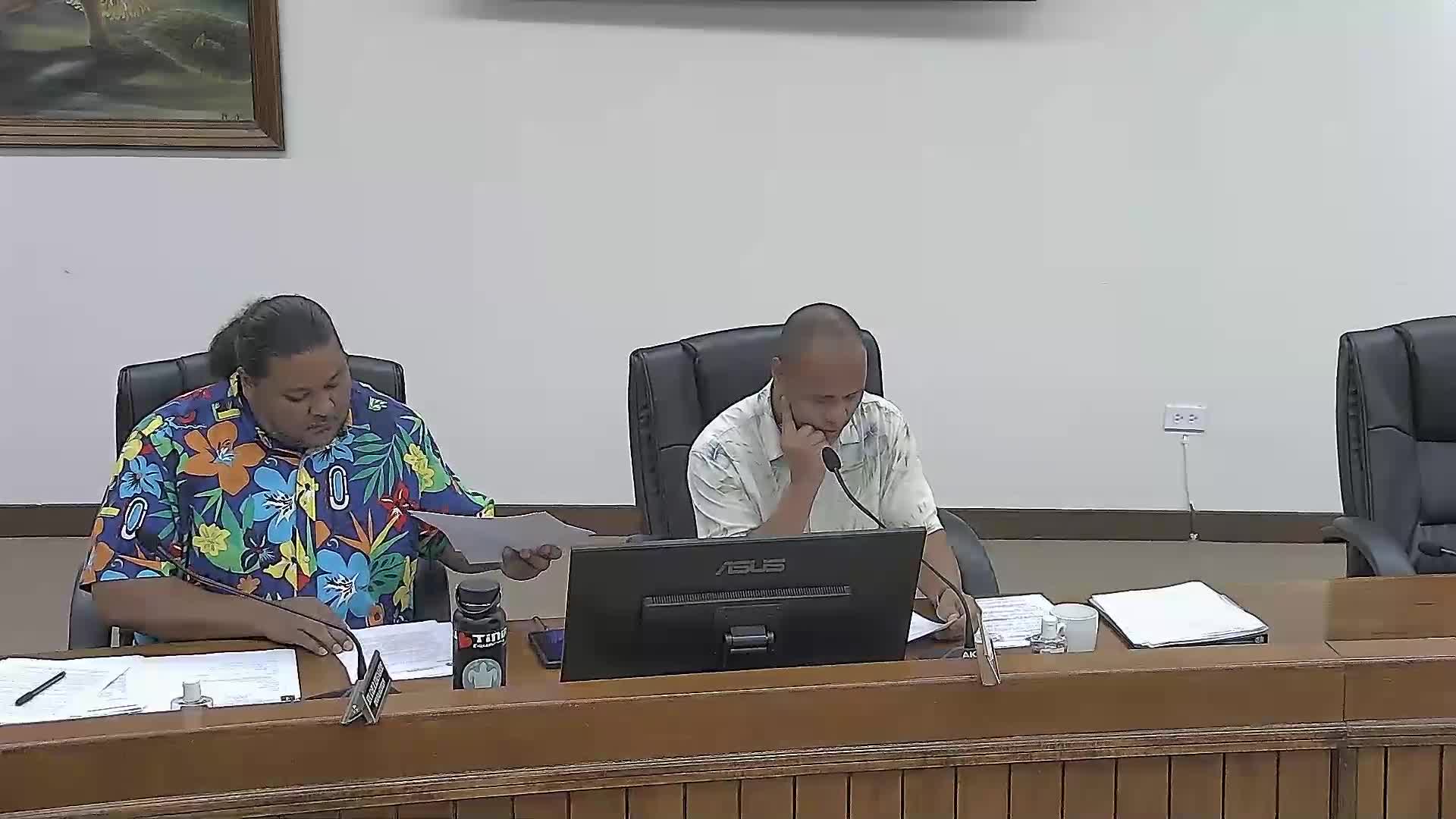Governor's executive powers questioned in legal review on CLC duties
July 06, 2025 | Senate, Northern Mariana Legislative Sessions, Northern Mariana Islands
This article was created by AI summarizing key points discussed. AI makes mistakes, so for full details and context, please refer to the video of the full meeting. Please report any errors so we can fix them. Report an error »

In a recent meeting of the Northern Marianas Commonwealth Legislature, significant discussions centered around the balance of power between the executive and legislative branches, particularly in the context of executive orders and their implications for governance. The meeting highlighted concerns regarding the authority of the governor to exercise executive powers and whether such powers can override legislative frameworks established by the constitution.
One of the key topics raised was the capacity of the Commonwealth Legislative Council (CLC) to manage enhanced duties while ensuring impartiality and maintaining public trust. Questions were posed about the legality of actions taken under executive orders, referencing the 2009 case of Torres versus Commonwealth, which serves as a precedent in evaluating the limits of executive authority.
The discussions also touched on specific examples involving the Commonwealth Utilities Corporation (CUC) and the Department of Public Works, where executive orders have been utilized. These cases were examined in light of judicial due process and the outcomes that have emerged from them, raising concerns about the government's ability to reorganize or reallocate resources without legislative approval.
Overall, the meeting underscored the ongoing tension between the branches of government and the need for clarity regarding the scope of executive powers. As the legislature continues to navigate these complex issues, the implications for governance and public trust remain critical. The next steps will likely involve further legal reviews and discussions to ensure that the balance of power is maintained and that the public's confidence in government operations is upheld.
One of the key topics raised was the capacity of the Commonwealth Legislative Council (CLC) to manage enhanced duties while ensuring impartiality and maintaining public trust. Questions were posed about the legality of actions taken under executive orders, referencing the 2009 case of Torres versus Commonwealth, which serves as a precedent in evaluating the limits of executive authority.
The discussions also touched on specific examples involving the Commonwealth Utilities Corporation (CUC) and the Department of Public Works, where executive orders have been utilized. These cases were examined in light of judicial due process and the outcomes that have emerged from them, raising concerns about the government's ability to reorganize or reallocate resources without legislative approval.
Overall, the meeting underscored the ongoing tension between the branches of government and the need for clarity regarding the scope of executive powers. As the legislature continues to navigate these complex issues, the implications for governance and public trust remain critical. The next steps will likely involve further legal reviews and discussions to ensure that the balance of power is maintained and that the public's confidence in government operations is upheld.
View full meeting
This article is based on a recent meeting—watch the full video and explore the complete transcript for deeper insights into the discussion.
View full meeting